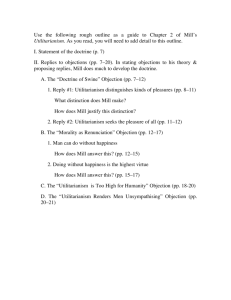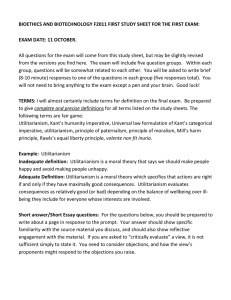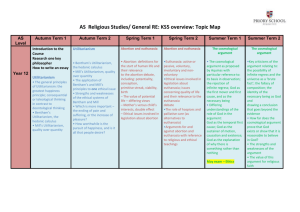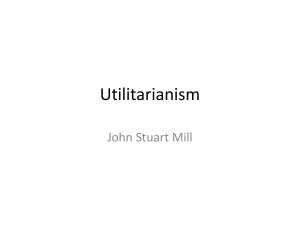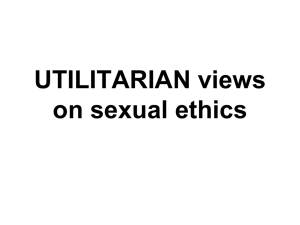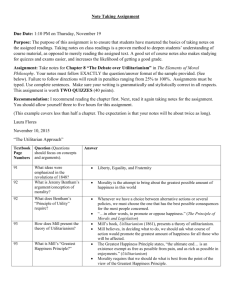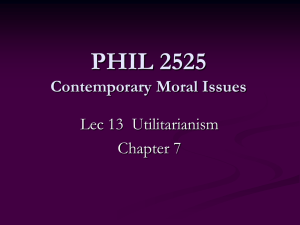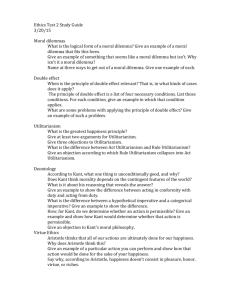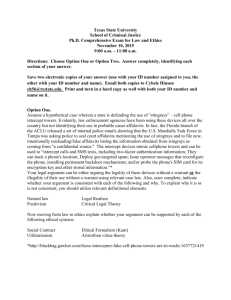Fall 2014 Midterm Review Guide
advertisement
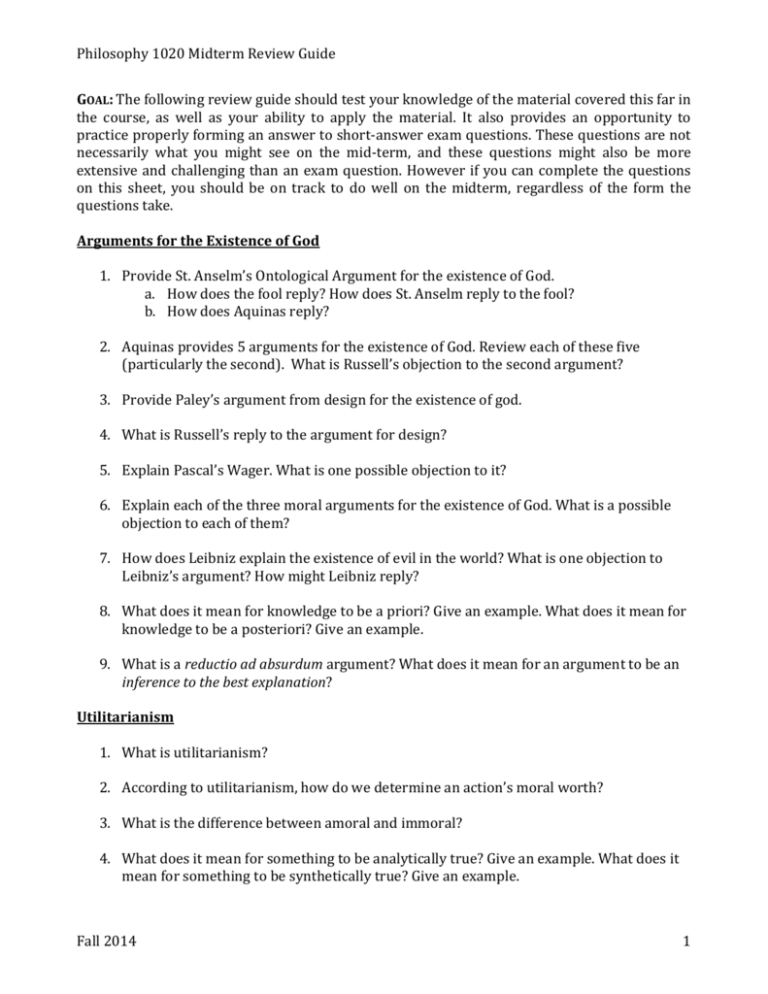
Philosophy 1020 Midterm Review Guide GOAL: The following review guide should test your knowledge of the material covered this far in the course, as well as your ability to apply the material. It also provides an opportunity to practice properly forming an answer to short-answer exam questions. These questions are not necessarily what you might see on the mid-term, and these questions might also be more extensive and challenging than an exam question. However if you can complete the questions on this sheet, you should be on track to do well on the midterm, regardless of the form the questions take. Arguments for the Existence of God 1. Provide St. Anselm’s Ontological Argument for the existence of God. a. How does the fool reply? How does St. Anselm reply to the fool? b. How does Aquinas reply? 2. Aquinas provides 5 arguments for the existence of God. Review each of these five (particularly the second). What is Russell’s objection to the second argument? 3. Provide Paley’s argument from design for the existence of god. 4. What is Russell’s reply to the argument for design? 5. Explain Pascal’s Wager. What is one possible objection to it? 6. Explain each of the three moral arguments for the existence of God. What is a possible objection to each of them? 7. How does Leibniz explain the existence of evil in the world? What is one objection to Leibniz’s argument? How might Leibniz reply? 8. What does it mean for knowledge to be a priori? Give an example. What does it mean for knowledge to be a posteriori? Give an example. 9. What is a reductio ad absurdum argument? What does it mean for an argument to be an inference to the best explanation? Utilitarianism 1. What is utilitarianism? 2. According to utilitarianism, how do we determine an action’s moral worth? 3. What is the difference between amoral and immoral? 4. What does it mean for something to be analytically true? Give an example. What does it mean for something to be synthetically true? Give an example. Fall 2014 1 Philosophy 1020 Midterm Review Guide Bentham 1. Briefly sketch Bentham’s account of Utilitarianism. 2. What is the principle of utility? 3. How does Bentham justify the principle of utility? 4. According to Bentham, how do we determine the value of a pain or pleasure? Provide one problem for his account. Mill 1. Outline Mill’s account of Utilitarianism. 2. What is the greatest happiness principle? How is this different from Bentham’s principle of utility? 3. In class, we discussed three objections to utilitarianism. Explain each objection, and for each objection explain how Mill would reply. 4. What does it mean to say someone is an act utilitarian verses a rule utilitarian? 5. What is the difference between an internal verses an external sanction? What role does this play in Mill’s account? 6. How does Mill justify his principle of utility/principle of happiness? Carritt 1. Carritt raises three criticisms of utilitarianism. Explain each criticism, and explain how a utilitarian might reply to each one. Kant’s Ethics 1. We discussed Kant’s approach to ethics and the nature of morality, which is based on 3 ideas. Explain each, and how they work together for his framework: a. The Good Will b. Duty c. Moral Worth How does a Kantian decide if an action in morally worthy? 2. What is the role of happiness in Kant’s account? 3. Explain Kant’s shopkeeper example in the context of duty and moral worth. 4. What is an Imperative? What is the difference between a hypothetical and a categorical imperative? Fall 2014 2 Philosophy 1020 Midterm Review Guide 5. Explain the first formulation of the Categorical Imperative: “Act only on that maxim through which you can at the same time will that it should become universal law”. 6. What is the difference between a perfect and imperfect duty? 7. What is the difference between material ends and ends-in-themselves? 8. Explain Kant’s second (or third, depending on how you count) formulation of the Categorical Imperative, “Act in such a way that you always treat humanity, whether in your own person or in the person of another, never simply as a means, but always at the same time as an end”. In particular, what does Kant mean when he says never treat people simply as a means, but at the same time as an end? 9. What is the difference between perfect and imperfect duties? Give an example of each. 10. Below are the four examples Kant uses in his application of the categorical imperatives. Answer the following four questions as a Kantian, providing justification for each ruling: a. Is it morally permissible to commit suicide? b. Is it morally permissible to make a lying promise? c. Is it morally permissible to neglect ones natural gifts? d. Is it morally permissible to refrain from helping others? Fall 2014 3
